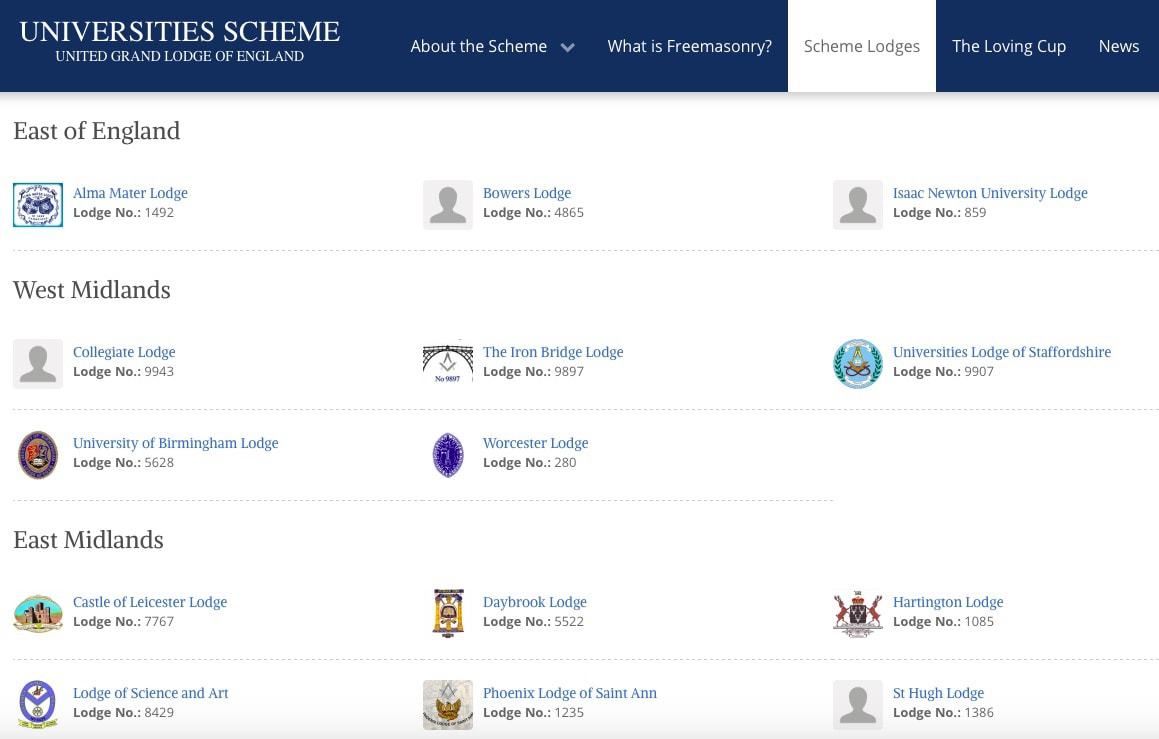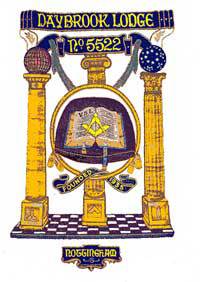There has been a lot in the news about Freemasonry of late. First there was the news about masons in Parliament and then there were the full page adverts in the newspapers inviting everyone to reconsider their views on what Freemasons were all about. This story on the BBC website quotes one member describing Freemasonry as a social network and ‘a bit like Facebook’. But things are not all straightforward it seems.
This letter, from Dr David Staples, Chief Executive of the United Grand Lodge of England, entitled ‘Enough is Enough’ sought to portray the treatment of 200,000 masons in the UK as discrimination:
At the United Grand Lodge of England, we value honesty, integrity and service to the community above all else. Last year we raised over £33 million for good causes.
As an organisation we welcome individuals from all walks of life, of any faith, age, class or political persuasion. Throughout our 300 year history, when people have suffered discrimination Freemasonry has embraced them into our lodges as equals.
The United Grand Lodge of England believes that the ongoing gross misrepresentation of its 200,000 plus members is discrimination. Pure and simple.
We owe it to our membership to take this stance, they shouldn’t have to feel undeservedly stigmatised. No other organisation would stand for this and nor shall we.
Rather surprisingly, to me at least, Dr Staples commented that he was also making a submission to the Equalities and Human Rights Commission about this discrimination (and then invited people to write to him for further information).
I think it is important to declare that I am not, nor I have I ever been, a Freemason. I do not have a great deal of information about the organisation but have long been of the view that it is not one with which I would ever want to be involved.
Personal views aside, I was even more surprised to learn about the association between the United Grand Lodge of England and universities. Apparently over 200 years ago the first university lodge was established at Oxford. ‘Apollo University Lodge’ was soon followed by ‘Isaac Newton University Lodge’ at Cambridge and
since then many thousands of young men have been introduced to Freemasonry through these two Lodges, and they provided the inspiration for the Universities Scheme.
The Universities Scheme started in 2005 with the objective
‘To establish and/or enhance arrangements and opportunities for undergraduates and other university members to enjoy Freemasonry’.
And now there are over 55 other lodges too with members from students, alumni and university staff (with those 18-25 years old benefiting from half price dues).

I have to say I am genuinely staggered at the number of such lodges and the fact that they have had such a low profile in higher education to date. Freemasonry has long had a reputation for being secretive and been viewed with suspicion not just because of its arcane rituals but also due to a deep-rooted view that Freemasons sought to advance the interests of their fellow lodge members over others. And the fact that it appeared that the vast majority of those involved were men with women largely excluded.
But perhaps this is just because no-one was really looking. These lodges don’t appear to be recognised by students’ unions in universities and play no overt part in university life as far as I have ever been aware. And yet they have been around for 200 years…
There is also a joint University of Nottingham and Nottingham Trent University Lodge it seems. Whilst it does claim there is a wide range of members it does appear that this lodge at least remains very much men only. But again, its very existence was news to me.

(As an aside, there also appears to be a Freemason University too. This Ohio-based institution offers a range of online courses in Freemasonry but given the dated look of the website it may now possibly be defunct.)
In the context of universities though you have to ask what relevance does the organisation actually have? There are many ways for students to meet with like-minded people, to get involved in their community and even more ways to take part in fund-raising for charitable causes. So why are these 55 lodges for university staff and students there? And what is the Nottingham lodge doing in sponsoring a student political society as has recently been reported?
The organisation has undoubtedly sought to make itself more visible and open – there’s even a DVD – and to provide more information about its activities. But it is difficult to see what place it has in contemporary society and especially in universities.













Sorry to hear of your naivety. Warwick has a long standing lodge, whose membership list was inadvertently open to inspection at a heritage open day at Guys Cliffe, Warwick – which is where they meet, but the penetration of the Freemasons in local government, particularly in planning and construction areas meant that the polytechnics had a strong representation of funny handshakes in administration, estates and catering. Although these members have moved on, retired and deceased, their influence was no doubt subtle and often highly beneficial to local contractors and detrimental to active trade unionists on campus. As they practised anti-semitism,… Read more »
It seems that Dr. Staples is absolutely correct in his assertion that misrepresentation by non-Masons is leading to discrimination in England after all. Your own writing here demonstrates it clearly. You find it to be “staggering” that young men in university would have any sort of an interest in joining the world’s oldest, largest, and best-known gentleman’s fraternity, which has had tens of millions of members for three centuries. You seem to be genuinely alarmed by it. You immediately wave off anyone else’s views by pronouncing that Freemasonry is irrelevant to university students, and that there are plenty of other… Read more »
Masons stronghold on universities maintains the male/pale/stale agenda meaning women and non-white staff marginalised, research limited to that world-view and bad management prevails. Smoke em out and get em out.
Also fuels toxic masculinity and racism among white male students when secretive fraternity takes stronghold.
Pale=white and stale=older? Wow. Also, the man who introduced me to masonry is black, we’re all brothers. It looks like you have your own toxicity to handle.